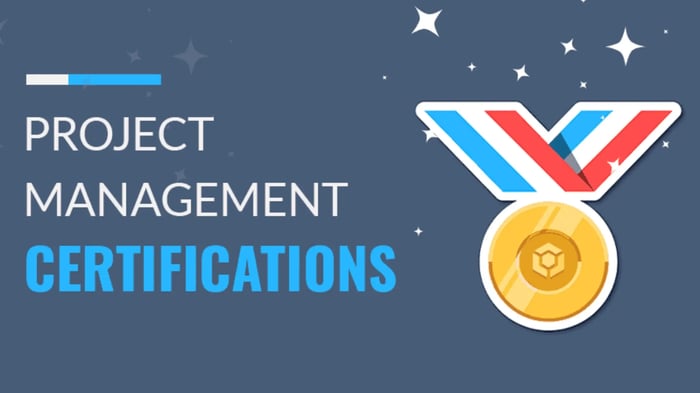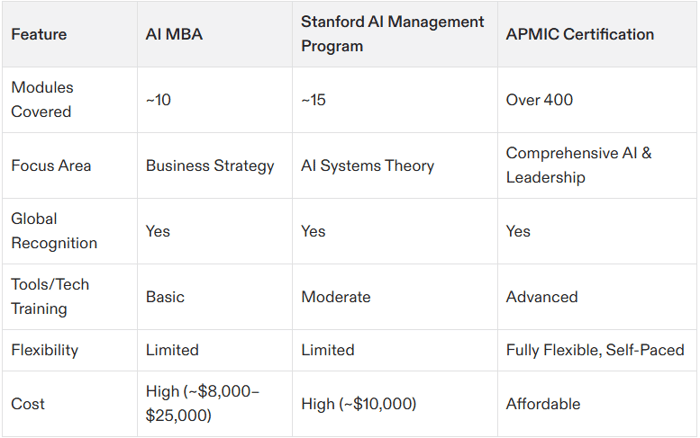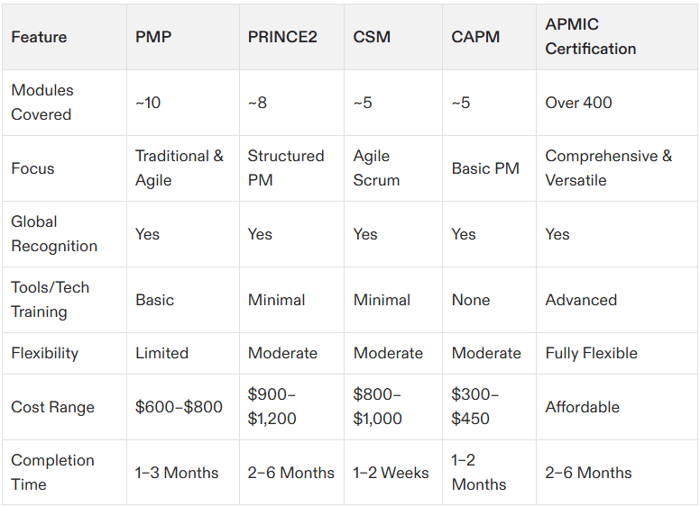Table of Contents
- The Not-So-Serious Start (But Seriously, You Need This!)
- What is Project Management Software Certification?
- Why Project Management Software Certification is a Game-Changer?
- Best Project Management Software Certifications in 2025
- The Core Features of Software Project Management Certification
- 10 Less Commonly Known Facts About Project Management Certification
- Final Thoughts
- FAQs
The Not-So-Serious Start (But Seriously, You Need This!)
Ever tried herding cats? That’s what managing software projects without proper certification feels like. Deadlines slip, budgets explode, and the only "Agile" thing in your team is how fast people run from responsibility. But fear not! Project management software certification is here to turn chaos into a symphony of efficiency, helping you lead projects with precision, confidence, and a stress level lower than your coffee addiction. Let’s dive into the ultimate guide for 2025!

What is Project Management Software Certification?
A project management software certification validates your expertise in handling projects using structured methodologies and industry-leading software. These certifications cover Agile, Scrum, Waterfall, and hybrid frameworks, along with tools like Jira, Trello, Microsoft Project, and Monday.com. Whether you're an aspiring project manager or a seasoned professional, these credentials can supercharge your career by making you the go-to expert in efficient software project execution.
Why Project Management Software Certification is a Game-Changer?
In today's fast-paced digital world, managing projects without the right skills is like trying to steer a ship without a compass. A Project Management Software Certification equips professionals with the expertise needed to leverage top-tier tools, methodologies, and strategies to streamline workflows. It helps project managers boost efficiency, reduce costs, and improve team collaboration using industry-leading software.
As businesses increasingly adopt Agile and hybrid project management frameworks, certified professionals stand out in the job market with higher earning potential and leadership opportunities. Whether you’re a beginner or a seasoned manager, a certification validates your ability to drive successful projects with cutting-edge software solutions.
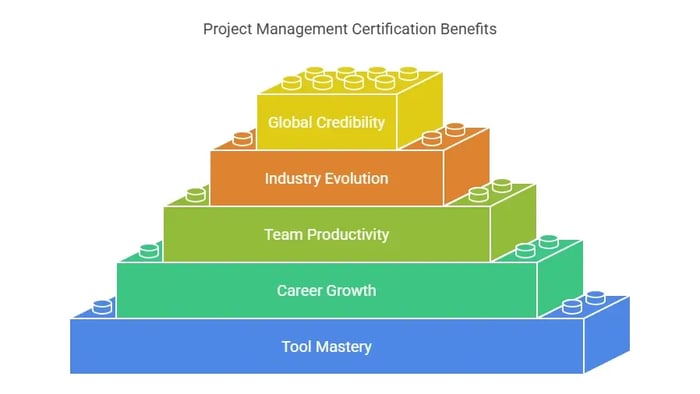
1. Master Cutting-Edge Project Management Tools
Gone are the days of Post-it notes and endless email chains. Modern project management tools use automation, AI-driven insights, and seamless integrations. Certifications train you in tools like:
Jira (For Agile & DevOps teams)
ClickUp (All-in-one project management)
Smartsheet (For resource planning)
Asana (Workflow automation)
Trello (Kanban & lightweight PM)
2. Boost Your Salary & Career Growth
A project management software certification doesn’t just look good on your resume—it makes hiring managers notice you. Certified professionals earn 20-30% more than non-certified peers and land top roles like:
Project Manager
Technical Program Manager
Agile Coach
PMO Director
3. Improve Team Collaboration & Productivity
Strong project management skills make teams more efficient, aligning goals across departments. Certifications help you:
Streamline communication
Eliminate workflow bottlenecks
Ensure project milestones are met
4. Stay Ahead in an Evolving Industry
The project management field changes fast. Certifications keep you updated with:
AI-powered project tracking
Hybrid Agile-Waterfall methodologies
Risk mitigation strategies
Predictive analytics for decision-making
5. Global Recognition & Industry Credibility
Certifications from top organizations provide worldwide recognition. Some of the best include:
PMP (Project Management Professional) – Gold standard for traditional project management
Certified ScrumMaster (CSM) – Ideal for Agile and Scrum practitioners
PRINCE2 – Popular in the UK and Europe
APMIC Certification – The most comprehensive, with over 400 modules
Best Project Management Software Certifications in 2025
The demand for top-tier project management professionals is skyrocketing, making certifications more valuable than ever. In 2025, the best certifications offer a mix of traditional project management principles and modern digital tools. Some of the top programs include APMIC Project Management Certification, PMP (Project Management Professional), Certified ScrumMaster (CSM), and PRINCE2 Practitioner.
These programs provide in-depth knowledge of Agile, Scrum, Waterfall, and hybrid methodologies, ensuring professionals can handle complex software-driven projects. A great certification should also cover AI-driven project automation, predictive analytics, and risk assessment strategies to keep professionals ahead of the curve. When choosing a certification, look for one that offers flexibility, global recognition, and a curriculum aligned with the latest industry trends.
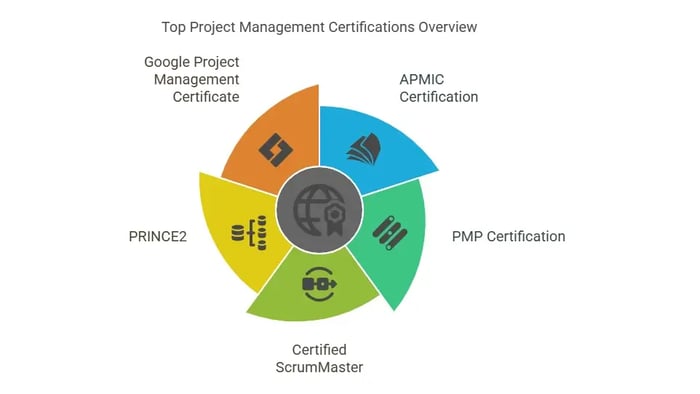
1. APMIC Certification
The APMIC certification stands out due to its unmatched depth. It covers traditional, Agile, and AI-driven project management approaches and is recognized globally.
2. PMP (Project Management Professional)
The PMP certification is the benchmark for experienced project managers. Offered by PMI, it focuses on leadership, planning, and execution strategies.
3. Certified ScrumMaster (CSM)
This certification is perfect for Agile teams. It teaches the fundamentals of Scrum, sprint planning, and backlog refinement.
4. PRINCE2 (Projects IN Controlled Environments)
Highly structured and widely recognized in Europe, PRINCE2 is excellent for process-driven project management.
5. Google Project Management Certificate
A beginner-friendly certification that teaches core PM skills using Google’s frameworks.
If you’re aiming to advance in IT project management, exploring the best IT project management certification options for 2025 can help you stay competitive and boost your career prospects.
The Core Features of Software Project Management Certification
Enrolling in a software project management certification equips you with an arsenal of practical knowledge. Here’s what most programs offer.
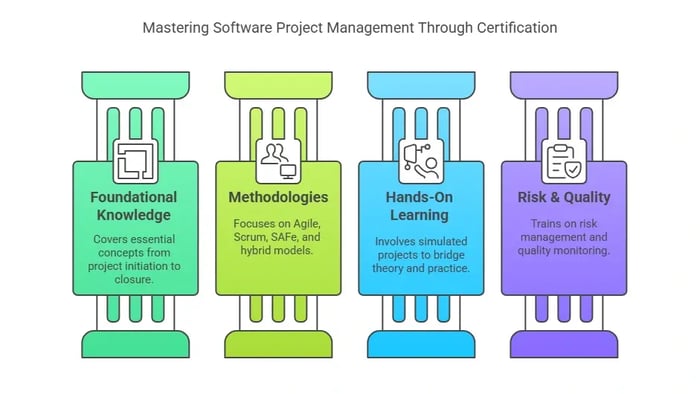
Foundational Knowledge in Software Project Lifecycle - From initiation to closure, the certification walks you through essential concepts, such as defining project scope, resource allocation, and post-mortem analysis.
Agile and Hybrid Methodologies - A key focus is on popular methods like Scrum, SAFe, and hybrid models that blend traditional and iterative approaches.
Hands-On Learning - Simulated software projects form an integral part of the curriculum. Real-world scenarios help learners apply concepts and bridge the gap between theory and practice.
Risk Management and Quality Assurance - Identify potential risks before they derail your software initiatives. Certifications train you to create contingency plans and monitor quality at every stage.
Certifications like the APMIC certification cover these areas and more, adding greater value with modules in cutting-edge topics like AI in project management and predictive analytics.
10 Less Commonly Known Facts About Project Management Certification
PMPs earn 32% more than non-certified peers. PMI
The first project management certification was introduced in 1969.
90% of high-performing organizations use certified project managers. PWC
Hybrid methodologies (Agile + Waterfall) are gaining traction. Scrum
AI is now automating 40% of project management tasks. HBR
Agile adoption reduces project failure rates by 38%. Version None
The PRINCE2 exam has a 55% pass rate, making it one of the toughest. Axelos
PMP requires three years of experience before you can apply.
APMIC certification includes over 400 training modules, more than any other certification.
Scrum teams are 20% more productive than traditional teams. Scrum
Final Thoughts
Investing in a project management software certification is a career-defining move that enhances your skills, credibility, and earning potential. Whether you’re aiming for PMP, CSM, or the APMIC certification, getting certified in 2025 ensures you stay ahead in an ever-evolving industry.
If you’re looking for the most comprehensive project management certification, check out the APMIC Certification. With global recognition and an industry-leading curriculum, it’s your best bet for mastering project management. Don’t just manage projects—lead them like a pro!
FAQs
Is a project management software certification worth it?
Absolutely! It boosts your credibility, career prospects, and salary while equipping you with essential skills.
Which project management certification is the easiest?
CSM is one of the easiest as it focuses on Agile basics and can be completed in a few days.
How long does it take to get certified?
It varies—PMP takes months of preparation, while CSM can be done in 2-5 days.
Do I need experience before getting certified?
Some require experience (PMP), while others (Google PM Certificate) are beginner-friendly.
What is the highest-paying project management certification?
PMP and APMIC certification holders typically earn the highest salaries.
Can I get certified online?
Yes! Many programs, including APMIC, offer self-paced online learning.
Which industries value project management certification?
IT, healthcare, finance, engineering, and construction highly value certified PMs.
What’s the best certification for Agile project managers?
CSM and SAFe certifications are the best for Agile environments.

